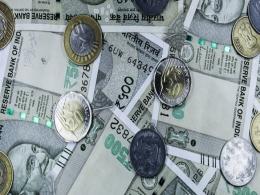British economist Angus Deaton has been awarded the 2015 Sveriges Riksbank prize in economic sciences in the memory of Alfred Nobel, stated a press release by Royal Swedish Academy of Sciences.
While Nobel prizes for physics, chemistry, medicine and literature have been awarded since 1901, the one in economic sciences is a more recent addition introduced in 1969 by Sveriges Riksbank or Swedish central bank.
Currently serving as professor at Princeton and author of various books on consumption theory and poverty, Deaton is well known for his work on welfare and inequality.
"To design an economic policy that promotes welfare and reduces poverty, we must first understand individual consumption choices. More than anyone else, Angus Deaton has enhanced this understanding. By linking detailed individual choices and aggregate outcomes, his research has helped transform the fields of microeconomics, macroeconomics, and development economics," the academy said.
Scottish by birth, Deaton had moved from University of Bristol to Princeton in 1983. He had completed his D Phil from Cambridge in 1975 publishing his first book titled ‘Economics and Consumer Behavior’ in 1980 which led to birth of Deaton Paradox—sharp shocks in consumption don't occur due to sharp shocks in income.
Famous for his research on developing nations, Deaton, 69, wrote his latest book ‘The Great Escape: Health, Wealth, and the Origins of Inequality’ in 2013.
The India connection
While Deaton has been among a few in modern times studying poverty and inequality, the focus of his research has been developing countries, primarily India.
Deaton through his work ‘The Great Indian Poverty Debate’ with Valerie Kozel challenged the tenets of globalisation highlighting that India had seen high rates of economic growth but the effects of globalisation on poverty have been controversial.







